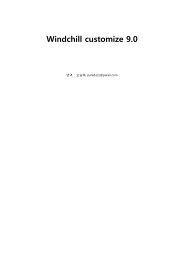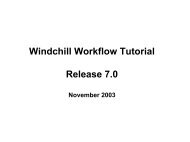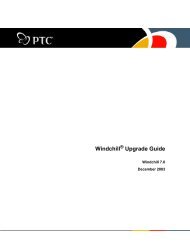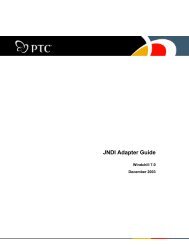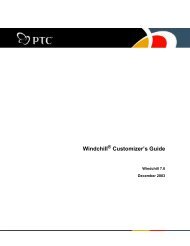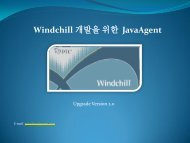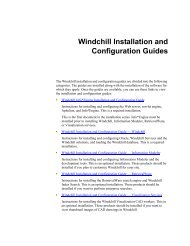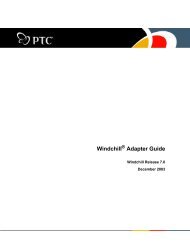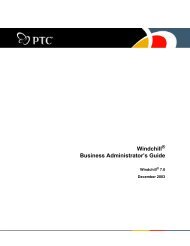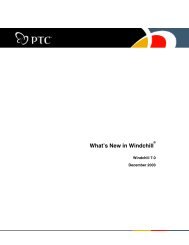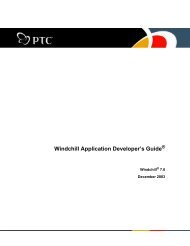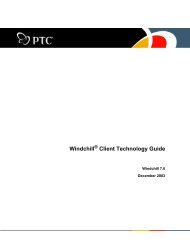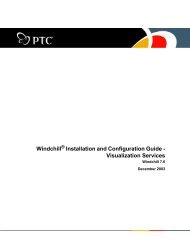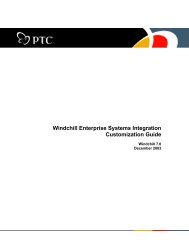Windchill System Administrator's Guide
Windchill System Administrator's Guide
Windchill System Administrator's Guide
You also want an ePaper? Increase the reach of your titles
YUMPU automatically turns print PDFs into web optimized ePapers that Google loves.
Log Files<br />
Database Components<br />
specifications that are executed by a background processing manager. The<br />
specifications are essentially method names and serialized arguments (stored as<br />
BLOBs) that are stored in the database for reliability.<br />
A transaction that triggers background processing includes updating a background<br />
method queue as part of the overall transaction. Once committed, the background<br />
manager is notified, and it proceeds to execute the methods asynchronously.<br />
Removal of queue entries is performed within the transaction that carries out the<br />
method, thus guaranteeing that entries are processed to completion only once,<br />
while still ensuring that incomplete transactions are restarted after system failures.<br />
Upon failure, entries are marked as requiring administrator intervention and<br />
ignored.<br />
Examples of the background processing mechanism include life cycle processing,<br />
workflow automation, and full text retrieval (FTR) index maintenance.<br />
For information about background queue configuration and maintenance, see<br />
Configuring and Administering Background Queues.<br />
Log files are used to capture exception/error tracebacks and debug tracing<br />
messages. In the first case, log entries are generally infrequent, marking<br />
exceptional events. However, you can enable more verbose logging levels for<br />
troubleshooting purposes. (Full tracebacks may not be available when you run<br />
some JIT compiler implementations.)<br />
Many packages support the printing of messages during execution to assist you in<br />
debugging. This option is typically controlled by property settings in the<br />
wt.properties file. Using these properties, you can enable or disable writing to log<br />
files. Additionally, log files can be appended or overwritten at each execution.<br />
Output can be sent to both the console and log file, or just the log file.<br />
Logging does have a performance impact, so the verbose mode should be turned<br />
off if you are not debugging.<br />
Each server application (server manager, method server, and HTTP gateway) has<br />
a separate log. For the HTTP gateway, CGI and Servlet share the same log file. In<br />
addition, code generation tools also have log files.<br />
Object Relational Database Management <strong>System</strong> (ORDBMS)<br />
The <strong>Windchill</strong> system uses an ORDBMS to store structured and unstructured<br />
business data. The database manager is typically run on the same host as the<br />
<strong>Windchill</strong> servers, but at larger sites it may run on a dedicated host and be<br />
accessed remotely from one or more <strong>Windchill</strong> server hosts. Oracle, with support<br />
for very large objects and object tables, is the reference feature set for which<br />
<strong>Windchill</strong> is designed.<br />
<strong>Windchill</strong> Runtime Environment A-17




